On Sunday, May 31, 22-year-old Borussia Monchengladbach forward Marcus Thuram scored two goals against Union Berlin to reach an impressive total of 19 goal contributions for the season.
Perhaps even more impressive, however, was the young Frenchman's goal 'celebration' following his first.
Having headed the ball in with precision, Thuram fist-bumped teammates before taking a knee for a few moments, a clear reference to NFL player Colin Kaepernick, who refused to stand during the US national anthem before a match back in 2016.
Kaepernick knelt with the aim of raising awareness amidst the climate of black people in the US that were facing police brutality. Following pressure by nationalists and the media, he was left hung out to dry by the NFL for his actions.
Four years later, Thuram has likewise shown his solidarity with African-Americans in a situation that has remained largely unchanged.
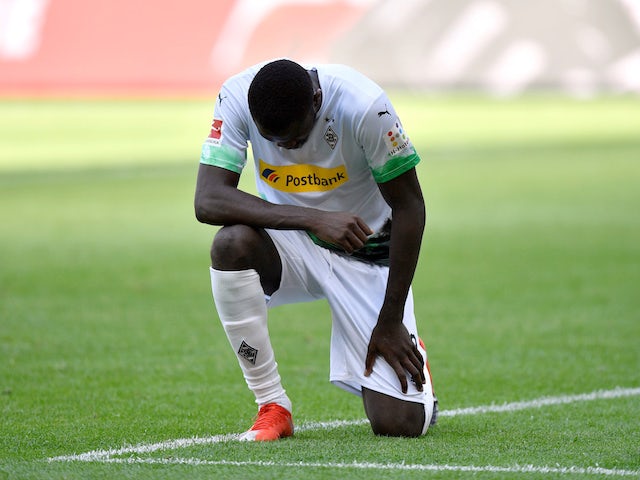 © Reuters
© Reuters
Amidst the recent protesting and rioting following the killing of George Floyd by a policeman, it is easy to fall into the trap of seeing racism as a problem that Americans are faced with – a distant issue to Europeans.
But this is a global problem and Thuram, along with Jadon Sancho, have reminded us that racism is not a separate issue from football.
Every season, year after year, we see several instances of racism in European football, whether it is black England international players getting booed during fixtures in Bulgaria or the Italian Serie A's lack of protection of its black footballers.
It was only April last year when Moise Kean was subject to racial abuse away at Cagliari, before celebrating a goal in front of the supporters responsible and receiving even more abuse.
Leonardo Bonucci, a defender and experienced leader for Kean's club at the time Juventus, responded after the game by saying: "Kean knows that when he scores a goal he has to focus on celebrating with his teammates. I think the blame was 50-50."
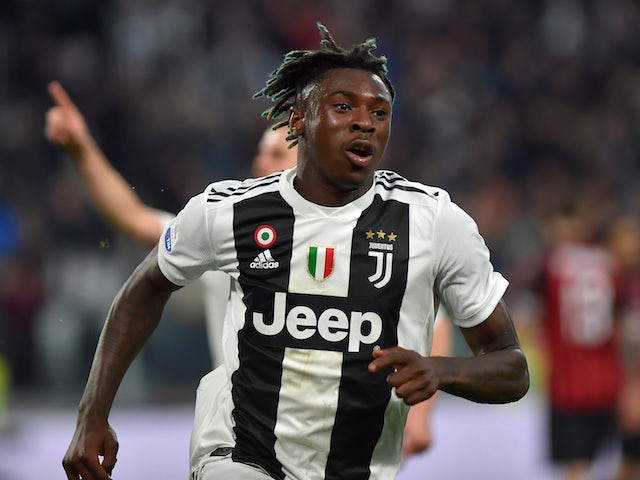 © Reuters
© Reuters
Serie A decided not to punish Cagliari on the grounds that "the chants in question, although certainly reprehensible, had an objectively limited relevance to race".
A few months later at the start of the 2019-20 season, Romelu Lukaku, who is of Congolese background, received a chorus of monkey chants whilst playing for Inter Milan – again at Cagliari.
After saying that football was "going backwards" in the fight against discrimination, Lukaku's own set of supporters – the Inter Milan ultras – gave a baffling and misguided statement justifying the racial attacks with the intention of comforting their striker.
"We understand that it could have seemed racist to you but it is just not like that," they wrote on their official Facebook page.
"In Italy we use some ways only to help our teams and to try to make our opponents nervous, not for racism but to mess them up."
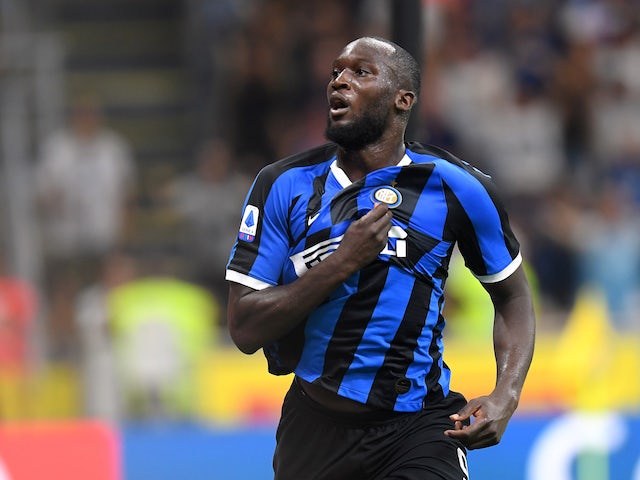 © Reuters
© Reuters
In November, Brescia's fans would release a similar statement to berate their own player Mario Balotelli following his angry outburst, having been racially abused.
These events show that a lack of action by governing bodies will result in repeat occurrences and even give fans a sense that they are free to abuse black players in the competitive spirit of the game.
Instances of racism also go far beyond Italy's top division, often with similarly low repercussions.
Take Bulgarian fans' chanting against England in the Euro 2020 qualifiers. The only punishment handed out by UEFA was the Bulgarian national team being forced to play two matches behind closed doors and a fine of £65,000.
Such punishments are largely recognised by footballers, who are the focus of these attacks, as half-hearted and highly ineffective in tackling the problem.
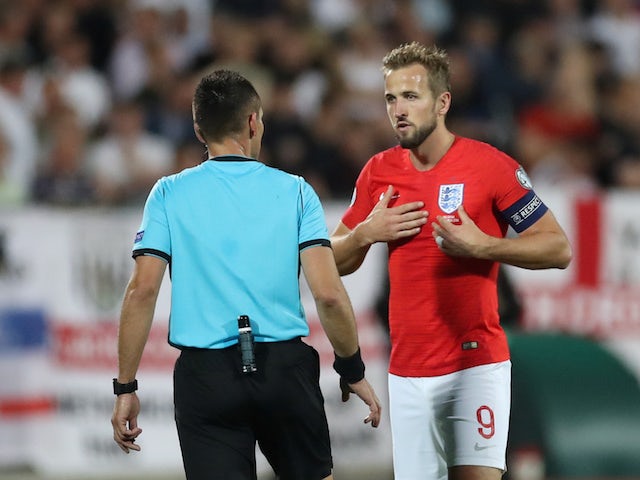 © Reuters
© Reuters
The fact that these cases still occur regularly makes it hard to argue otherwise. Indeed racist fans are often not the ones paying the fines and matches being played behind closed doors is ineffective if those responsible can simply continue to watch their side on TV.
When looking at the swift reaction and unity of clubs towards other matters, it becomes clear that racism is largely not seen as a pressing enough matter in football.
Think back to Bayern Munich's match against Hoffenheim in February.
An offensive banner aimed at Hoffenheim's president Dietmar Hopp led to the match being stopped twice. Both teams were then led off the field and returned only to run down the clock for the remaining 13 minutes in demonstration against the abuse.
Though such abuse has no place in football, the banners in question were a statement against Hopp's clever avoidance of the 50+1 rule which is in place in Germany to give fans more control over their football clubs.
The swiftness with which the abuse was dealt with when it targeted a rich, white owner and the reaction by the likes of Karl-Heinz Rummenigge and the DFB (German Football Association) is vastly different to how racial abuse is dealt with.
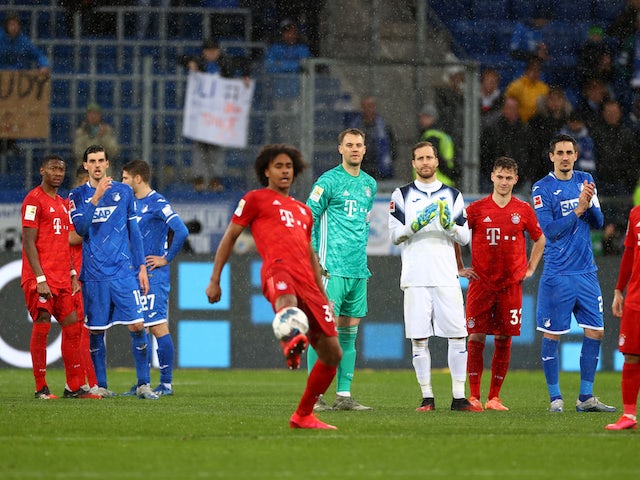 © Reuters
© Reuters
For how long have we been asking both sets of teams to unite and leave the field when a player is subject to racism?
Furthermore, compare the stance taken in this case to Thomas Muller, the Bayern player who responded to Mesut Ozil's claims that the DFB was racist by stating there was no racism in German society.
So what has to change?
As with the case of police brutality in the US, there must be stricter laws and harsher penalties against those that believe racism has a place in the 21st century.
Recently, England and former Manchester United legend Rio Ferdinand spoke of what little faith he had in anti-racism campaigns such as Kick It Out to protect black players, both during his playing days and today.
When players themselves do not feel protected, it is clear that more severe measures must be brought in.
Harsher penalties such as removing teams from European competitions and deducting points could be a start.
Perhaps it is also time for bodies such as UEFA to go to the likes of Lukaku and youngsters such as Thuram and Sancho directly in order to understand first-hand how to best tackle racism from the root.
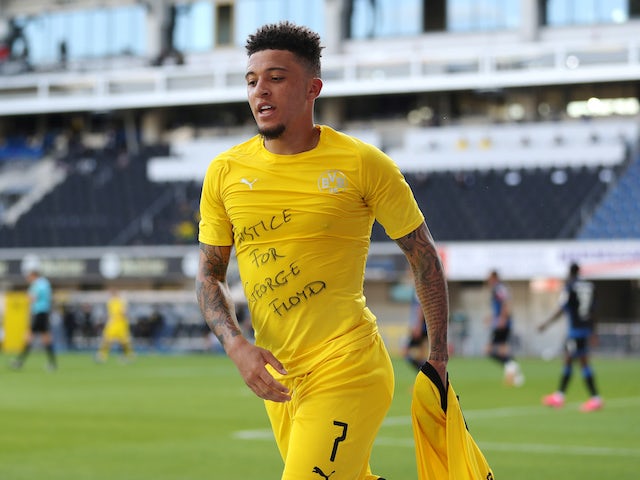 © Reuters
© Reuters
Involving people that have been directly impacted in the decision process will give a much better understanding of how to tackle a problem which black players are faced with, rather than the large number of non-minority decision-makers on club boards and UEFA committees.
Thuram's political statement could be the first of many that we see over the coming weeks – a necessity in order to eradicate racism in our own home, European football, before pointing the finger at America.
But raising awareness, striving for change and educating fans must continue. Only when players of all backgrounds come together will racism be taken more seriously by governing bodies and clubs.
Though the road to a future free of racism seems arduous and a distance away, it is actions such as those shown at the weekend that start to provoke thought and change.

